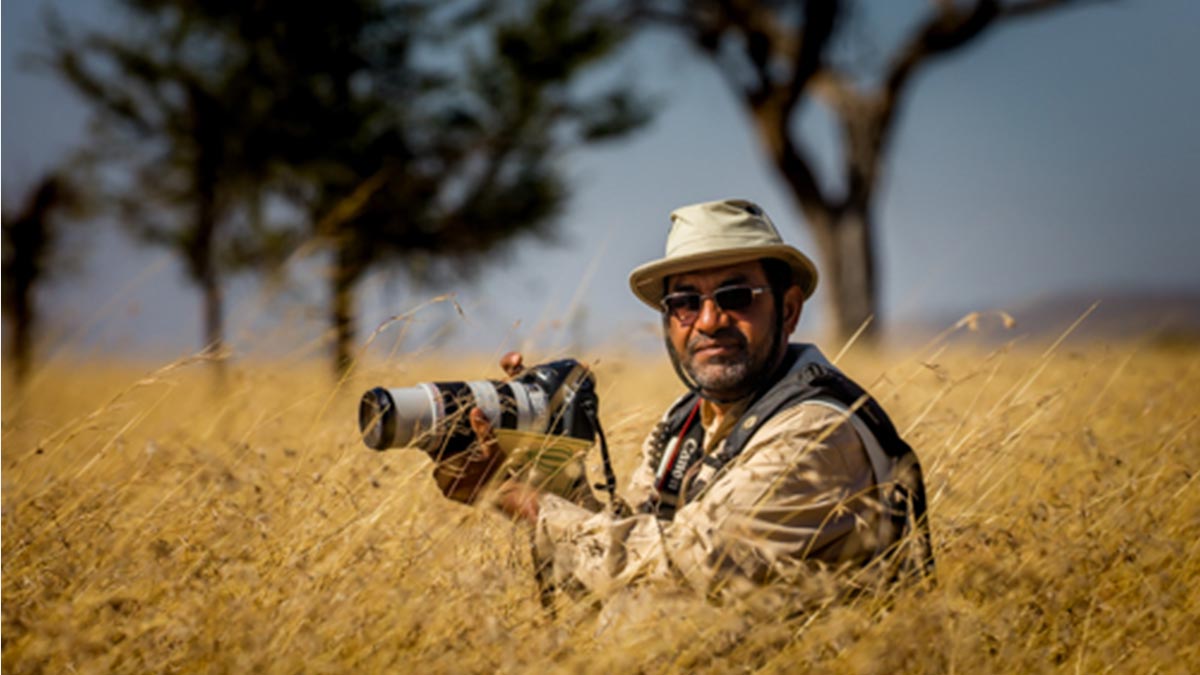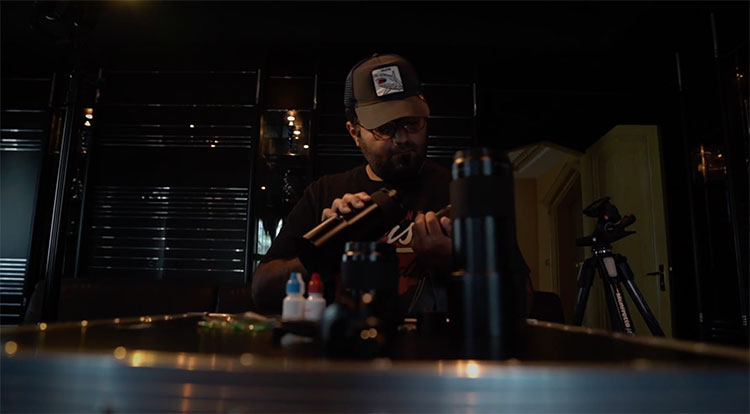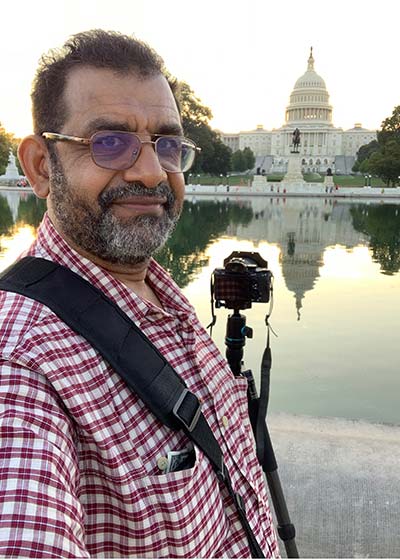
A former veteran, Abdullah Zahran Al Balushi started his career by serving his first 30 years in the military, during which he served in various capacities. His last job while there was directing the procurement of F16 Fighter planes for the Royal Airforce of Oman. During his time in the military, prior to the F16 procurement, he served for four years as the Defence Attaché in Washington DC. After retiring from the military in 2009, he joined the private sector business community and served as the GM for a company under the Zawawi Group called ITCOM. “I also served within the Zawawi group in multiple different capacities, including as a Board Director and Chairman of a number of large companies. Because these boards were very diversified and included an agricultural company, bank, logistics company, insurance firm, data centre, and many others, this is where I got most of my experience,” said Al Balushi.
In addition, he also served on several national committees including the Agriculture Committee, and later The Education and Training Committee at the Chamber of Commerce. “I have also participated in a committee that was under the Royal Diwan called ‘Partnership’, or ‘Sharaka’ in Arabic, where private sector leaders and senior government decision makers partnered to initiate policies that improve the business environment in the country.”
Abdullah Al Balushi left the Zawawi Group in 2018 to join The Zubair Group, where he assisted in setting up a company called the National Security Services Group (NSSG), which provides cyber security services and was one of the first Omani Companies to offer high quality cybersecurity services in the country and is currently one of the only firms accredited by the Ministry of Transport, Communications, and Information Technology to provide Cybersecurity services. Furthermore, NSSG was the first CREST accredited organisation in the MENA region for penetration testing, and holds an ISO 27001 certification which covers their internal network, data centre, employees, physical security, and penetration testing operations. NSSG is also one of the only entities in the country that holds Technology Indemnity Insurance, which helps monetarily compensate clients under compliance with the General Data Protection Regulations (GDPR).
“I was the President and Managing Director of that company for two years, following which I handed it over to my deputy at the time – who is now the CEO – Talal Al Zubair, following which I moved to the Al Zubair Corporation Head Office as an Advisor to the Board. Immediately after joining, about a year ago, I was directed to look after an ambitious project – for the digital transformation of the Group. This is something I am currently in the middle of and hopefully, when completed, we will be one of the first fully digitally transformed groups in the country.”
Outside of his regular jobs, Abdullah Al Balushi also established his own company, together with a partner – Khalid Al Wahaibi, about seven years ago, called Brand Infiniti. It is a company that provides professional media services such as video and photography for the private businesses and the government. “We also have a more social side to the business – a smaller company within the group – we called ‘Infinite’. Under this brand, we cover social events such as weddings, and product launch photography and filming. In fact, I am also a lifelong photography enthusiast and professional.”
With such diverse experience, covering so many fields, there is no one better to provide us with a snapshot of what we can expect from the business sector and especially for SMEs going forward into 2021. Here is the excerpt from our interview with Abdullah Al Balushi.
The ongoing pandemic, coupled with the drop in oil prices just prior, has had a drastic effect on businesses, and SMEs in particular, throughout 2020. Do you feel the situation will improve in 2021?
I am hopeful for the future. The recent restructuring of the government in Oman and the changes His Majesty has made, together with the new laws and regulations, will be very helpful in improving the business landscape especially for foreign investors. I am aware that some of the laws which were introduced recently were perceived as unhelpful by some, especially the ones to do with raising charges for acquiring work permits and visa for hiring senior expats, however, overall, the changes made have been positive for foreign investors. It is much clearer now for investors to know which path to follow and which government entity to approach for any particular investment project.
As far as the oil prices are concerned, we have seen some improvement. While it’s still in the “risky” area, it is far better now than what it used to be a year ago, coasting around USD 50 per barrel. This is almost at par with what the government had planned its budget for this year. But in the long term the government is looking to diversify the economy and is taking major steps towards that. Oman Vision 2040 includes many projects that will address those areas. Hopefully, when the pandemic is behind us, foreign investors will be willing to come and invest in those areas. This will definitely improve government revenues from non-oil sectors.
As far as local businesses and SMEs are concerned, obviously the changes introduced by the government and the improved revenues from oil will provide better opportunities both in the short term and long-term, depending on how the oil prices pan out.
But overall, with the continuation of the vaccination efforts by the government, we are hopeful that by the end of summer, or at least by the end of the year, we will be able to reach the desired number of 60+% vaccinated population. Once we achieve this target, it should help in making us to feel safer and more confident, which will be a very positive thing for the country as a whole.
As a business owner yourself, how has this affected you and your own business?
On a personal level, this pandemic has affected my own business very severely. This is because, the retail part, were we usually covered high-end weddings and functions, was hit badly due to government restrictions. With those events cancelled on public health grounds, we lost almost lost 100% of our business.
While there were some opportunities to cover smaller private events, we were reluctant to send our crews and risk their safety. We did this knowing that other competitors and freelancers continued taking up assignments in private locations such as farms and private houses.
We utilised this break in business to train our staff on new skills, utilising online classes on more advanced editing and filming techniques, and other related topics. So hopefully, we will come out of this pandemic with better and more capable crews.
On the corporate side, with Brand Infiniti, we did manage to take up a couple of assignments. These included projects for large companies and the government, but most were filmed in open areas where the health risk was kept to a minimum. Because we are one of the few companies who have the capability of using large drones, we had some companies come to us to carryout jobs that required them. But overall, in spite of this, we lost about 70% of our business in the year 2020. So, we are hoping to recover some of that this year.
What steps do you think businesses, SMEs in particular, need to take to preserve business continuity in the coming year?
The pandemic took everybody globally by surprise. Nobody was expecting it to have such a drastic effect on the global economy. As for the effect of the pandemic itself on individual businesses, it depends on the type of business, with some faring better than others. Either way, it would be difficult for anyone to eliminate their risk, even in the future.
In general, however, I think for now we should learn how to utilise information technology, the Internet, and social media more to build a strong relationship with our customers. This is something I would recommend continuing to practice even during, what I may call, “peace time,” when there is no pandemic, because it will allow us to become familiar and comfortable with the technology as well as provide an opportunity for our customers to interact with us online. This will also allow us to gain some insight into what are the best channels of communication that can be established, either for ordering our raw material, marketing our products, or providing aftersales support to our customers. We also have to learn and adapt to new ways of selling our products and delivering them. It is important to get good at it, because the more we do, the better we get and the more cost effective it becomes.
Take restaurants for instance. Immediately after the pandemic hit, the sector lost almost 80% of their business almost immediately due to the lockdown. Gradually however, many converted their businesses in such a way as to deliver their food directly to their customers at home. This, however, took time and those who did so quickly were able to not only survive but actually thrive, because they were the only options available to many customers at the time.
The same goes for other industries as well, including the larger ones. A good example is bottled mineral water manufactures. Oasis mineral water has been mainly shipping their products to large supermarkets. However, after the pandemic hit, and many of the stores were closed, Oasis had to learn how to deliver their product directly to end customers. Now all customers need to do is order their water bottles online and they just get it delivered to their house and the additional delivery cost is annulled by removing the main resellers from the chain.

So, to put it simply, we need to educate ourselves better on what technologies are available to us and learn how to use them to digitise our business process cycle as much as possible. Whether it is ordering a meal, book, or film, we have to make it easy for our customers to search and learn about our products and service. Because once it’s in digital form it can be easily delivered over the Internet, through various social media outlets, or other digital forms available to us.
Another big lesson we learnt has to do with education. For the past decades we have been taking children to schools to sit in physical classrooms to get their education and learn. The same goes for teachers. But soon after the pandemic hit, we changed to provide the same service online. So, I feel there will be a big change in the way the various Ministries of Education around the world will be thinking about delivering education in the future. I know this type of service was available before, but nobody had looked at it as a serious replacement of the current system. But now that we are using it in a much larger scale, people look at it differently. I, myself, am a very strong believer in online education, I did my final MBA thesis on distance learning. And back in the year 2000, we set up the first distant learning English language lab, where students could study English online. They didn’t have to travel to the language school.

